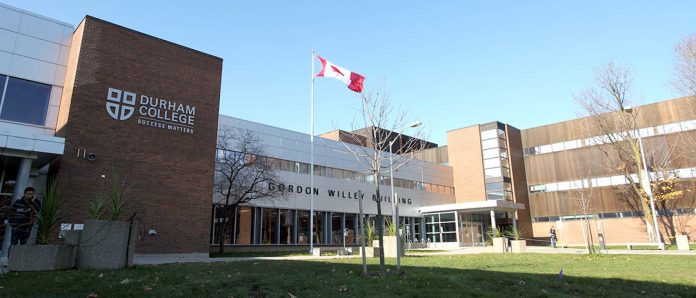“When you hear the heard the word (COVID-19) outbreak…it sets off these red lights and alarm bells,” said Dr. Wally Bartfay, Associate Dean, Undergraduate Studies, and Faculty of Health Sciences at Ontario Tech University. “If you ask your neighbour for example, they often have belief that hundreds of individuals are involved.”
The outbreak at Durham College (DC) on Jan. 20 only involved two students in the the H-Wing and has been the only declared outbreak for the school. To date, Durham College has had 45 positive cases of COVID-19 among its students with one case being transmitted on campus.
The numbers for this outbreak are low, and Bartfay said they’re not surprising considering Durham Region is currently in the red zone of the province’s COVID-19 Response Framework.
The Durham Region Health Department (DRHD) defined the outbreak as low risk for the campus community. In a statement to the Chronicle, the DRHD said that a low risk contact would be asked to self-monitor for symptoms but would not be excluded from school, where a high-risk contact would be excluded from school and required to self-isolate for 14 days.
The school can also exclude a student from campus until an assessment can be made, according to the DRHD.
The DRHD’s statement said when the outbreak was declared, a public health inspector contacted the school to review all cleaning and disinfection protocols to ensure the correct disinfectant was being used to clean the H-Wing and provide the school with information about prevention control measured.
DC reportedly thoroughly disinfected the H-Wing soon after, according to a press release, and Dr. Bartfay says they “absolutely” did enough to satisfy him.
“Once there’s a declared outbreak, the correct protocol is to send in the army, so to speak, and eradicate everything,” said Dr. Bartfay. “That’s what we want to see.”
He also pointed out that on top of the deep cleaning, shutting down the area for about three days means that the likelihood there would be any remains of the virus being present would be “very low”.
Both DRHD and Dr. Bartfay continue to advise following all public health protocols, such as wearing correct personal protective equipment, following social distance protocols and frequently washing your hands and avoiding high touch surfaces.




